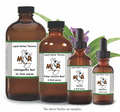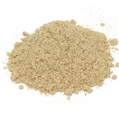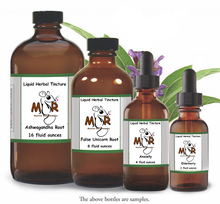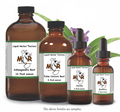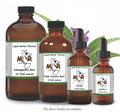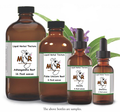 Loading... Please wait...
Loading... Please wait...- Home
- Herbal Tinctures
- Herbal Tinctures - Single Herbs
- Black Walnut Hulls Tincture
Black Walnut Hulls Tincture
Product Description
Black Walnut Hulls Tincture
Also Known As - Juglans nigra, Akschota, ructus Cortex, Juglans, Juglandis, Juglandis Folium, Juglans regia, Nogal, Walnut, Walnut Fruit, Walnut Hull, Walnut Leaf.
Overview - The black walnut tree is Native from New England all the way down the east coast and over to Texas. It is a tall deciduous tree reaching heights of up to 75 feet. It is prized for it's timber and has an elegant grain with a very hard yet workable texture making it perfect for furniture making, floors and other fine carpentry including it's use to fabricate gunstock. A 50-foot tree can be valued at up to $2500 for its wood. The nuts provide a robust, distinctive, natural flavor and crunch as a food ingredient. Members of this family of trees produce a chemical called juglone, which is an example of an allelopathic compound, a substance that is synthesized by one type of plant and affects the growth of another. Landscapers have long known that gardening underneath or near black walnut trees can be difficult. Ancient Greeks and Romans called black walnut fruit the “imperial nut” and reportedly used the hull to treat intestinal ailments. Black walnut has also played a part in Russian folk medicine since the seventeenth century. Throughout history, every part of the tree has been used in folk medicine to treat dozens of conditions, including the bite of a mad dog.
Parts Used - Rind of the fruit.
Medicinal Uses - The fresh green hulls are used to produce the herbal medicine and are concentrated in the chemical mentioned above; juglone. Since juglone inhibits certain insects, bacteria and fungi in plants and in the black walnut tree itself, researchers have searched for a correlation with its use internally in humans. Many cultures have used Black Walnut hulls to support a healthy intestinal environment and eaten the nuts for their rich Omega 3 essential fatty acid content, vitamin C and flavor. The astringency from the tannins in the hulls and leaves have led herbalists over the years to include Black Walnut in topical applications for the skin.
Ingredients: Black Walnut Hulls, Certified Organic Grain Alcohol. 1:4 Ratio
All of our products are Non-GMO, gluten-free, natural and organic.
Drops are taken by mouth, usually mixed with a small amount of water or added to tea, and each has unique properties and flavor. Some may be used topically as well.
The tincture will arrive in a 2 fluid ounce amber glass bottle with black dropper. Please read bottle label for recommended dosage and read the information mailed with your tincture. Take with water. Shake well prior to use. To maximize shelf life please store upright in a cool, dark location.
Active Constituents - Juglone (5-hydroxynaphthoquinone), iodine, vitamin C
Precautions - Not for use during pregnancy or lactation. Husk will stain anything it touches.
Disclaimer - The information presented herein by Mountain Maus’ Remedies is intended for educational purposes only. These statements have not been evaluated by the FDA and are not intended to diagnose, cure, treat or prevent disease. Individual results may vary, and before using any supplements, it is always advisable to consult with your own health care provider.
Find Similar Products by Tag
Find Similar Products by Category

Product Reviews
-
Excellent

Posted by BPT on 24th Aug 2020
It arrived timely and in a well-packaged box. I hope for it to meet my expectations as a medicine.
-
A very good product.

Posted by Edward T. on 28th Dec 2015
I like it. I use anti-parasite products twice a year for better health.
-
Very fresh

Posted by D. Smith on 28th Dec 2015
I used many of Black Walnut Tinctures and this is the best one. Non-oxidized green tincture. Very fresh.






